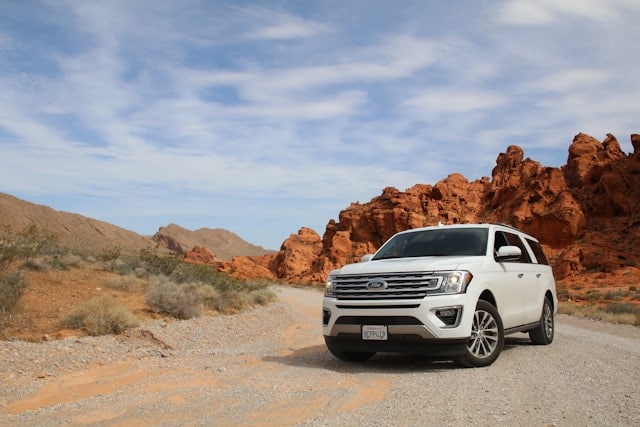If you’re a Ford enthusiast considering tinting your windows in Georgia, it’s essential to be aware of the state's window tinting laws to avoid fines and ensure your vehicle is compliant. Whether you drive a Ford F-150, Mustang, or Explorer, understanding these regulations will help you make informed decisions about window tinting.

Understanding Window Tinting Laws in Georgia
Georgia has specific rules regarding the amount of tint you can apply to your vehicle’s windows. These laws ensure safety on the road while allowing some degree of privacy and UV protection. Here’s a breakdown of the key regulations you need to know:
1. Windshield Tinting: Only the top 6 inches of the windshield can be tinted, and the tint must be non-reflective. This rule applies to all vehicles, including popular Ford models like the F-150 and Mustang.
2. Front Side Windows: The front side windows must allow more than 32% of light in. This regulation ensures that drivers maintain good visibility, which is crucial for safe driving. For your Ford Explorer or F-250, this means the tint must be relatively light.
3. Back Side Windows: For back side windows, the tint can be darker, but it still must allow more than 32% of light in. This applies uniformly across all vehicle types, so whether you’re driving a Ford Fusion or a Bronco, make sure your tint meets this requirement.
4. Rear Window: Like the back side windows, the rear window must also allow more than 32% light transmission. This law ensures that drivers can see clearly out of the back of their vehicles.
5. Reflective Tint: Georgia law also limits the reflectiveness of window tints. The tint on the front and back side windows must not be more than 20% reflective. This is to prevent excessive glare that could affect other drivers.
Tint Rules - Exemptions and Additional Considerations
There are a few exemptions to these rules. For example, vehicles used by law enforcement agencies, limousines, and certain other specified vehicles may have different requirements. Additionally, individuals with a documented medical condition requiring additional UV protection can apply for an exemption from the standard tinting laws.
Popular Ford Models and Window Tinting
Let’s look at some of the most popular Ford models and how these laws might affect your tinting choices:
- Ford F-150: As one of the best-selling trucks in the U.S., the F-150 often sees a variety of customizations, including window tinting. Ensuring your front side windows and rear window adhere to the 32% light transmission rule will keep your F-150 compliant.
- Ford Mustang: The Mustang’s sleek design often calls for a stylish tint. Remember, only the top 6 inches of the windshield can be tinted, and the front side windows must maintain the 32% light transmission standard.
- Ford Explorer: As a family-friendly SUV, the Explorer benefits from window tinting for added privacy and UV protection. Ensure all side and rear windows comply with the 32% rule to keep your Explorer street legal.
Tips for Choosing the Right Tint company
1. Consult a Professional: Always have your window tint installed by a professional to ensure it meets legal standards and is applied correctly.
2. Check for Certification: In Georgia, the tint installer should provide a certification sticker or card that proves your tint complies with state laws.
3. Consider UV Protection: Beyond legality, think about the benefits of UV-protective tints, which can protect your skin and reduce interior fading in your Ford vehicle.
4. Stay Informed: Laws can change, so it’s important to stay updated on any modifications to window tinting regulations in Georgia.
Tinting your Ford’s windows can enhance its appearance, provide privacy, and protect against UV rays. However, ensuring your vehicle complies with Georgia’s window tinting laws is crucial to avoid fines and ensure safety. Whether you drive an F-150, Mustang, or Explorer, following these guidelines will help you enjoy the benefits of window tinting without any legal hassles.
For more detailed information or specific inquiries, consider consulting with a local window tinting professional or checking the Georgia Department of Public Safety’s official guidelines. Happy driving and stay cool!